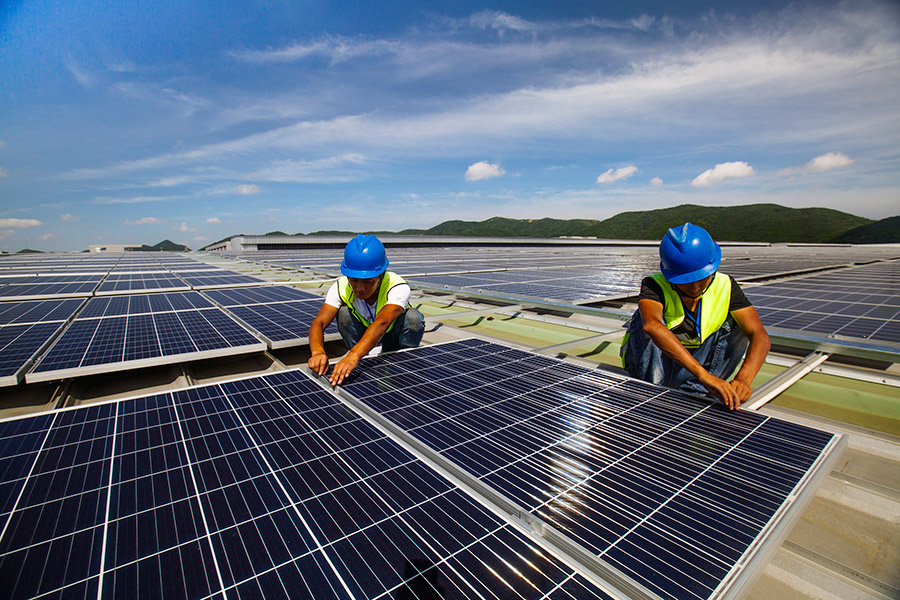
The requirement was highlighted in an inspection report submitted to the ongoing bimonthly session of the Standing Committee of the National People's Congress, China's top legislature, for review on Tuesday.
In the inspection, which ran from August to November, legislators found the country's capability for technological research and the quality of manufacturing in renewable energy, especially for core technologies, were inadequate and should be intensified.
"For example, we discovered technological bottlenecks in high-capacity energy storage, and that new, safe and affordable energy storage products also needed to be promoted," Ding Zhongli, vice-chairman of the NPC Standing Committee, said when explaining the report to the legislature.
"Meanwhile, we found the country's subsidy policies for electricity prices were not effectively implemented, and the subsidy funds were insufficient, which means they could not be issued in a timely manner," he said.
"It has influenced the operation and development of some enterprises."
"We suggested government departments, including those in development and reform, finance and energy, further promote the subsidy regulations to ensure scientific and sustainable improvements in the industry," he added.
According to the report, the inspection team not only went to provincial-level regions, including Hebei, Jilin and Gansu, to review whether the Renewable Energy Law worked well, it also organized several seminars involving more than 80 energy professionals to share their opinions on renewable energy.
Overall, the law, which came into effect in January 2006, has contributed to energy-related reforms, ecological and environmental protection and sustainable economic growth, the report said.
The State Council, China's cabinet, and provincial-level governments, also paid a lot of attention to carrying out the law, making regulations or specifying rules to ensure enforcement, according to the report.
Governments in Heilongjiang, Shandong and Hubei provinces, for instance, made regulations for renewable energy in rural areas, while authorities in Jilin province and the Guangxi Zhuang autonomous region focused on development and utilization of water resources, it added.